The Roundtable discussion on 8/17 included a presentation of the results of a survey on professional development interests and expertise that was sent out to the NCEAS community. (Thank you to everyone who filled out the survey!) During the discussion, we spent quite a bit of time delving into ideas about presentations or discussions related to areas of professional development that elicited high interest from the survey respondents.
In the figures below, numbers of respondents who reported each level of interest and expertise are shown in the vertical, and different areas of professional development are listed from left to right. Purple segments represent level of interest, and green segments represent areas of expertise. Please let me know if you have any questions about how to interpret the figures.
-
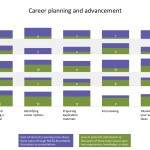
-
Career planning and advancement
-
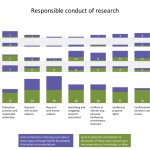
-
Responsible conduct of research
-
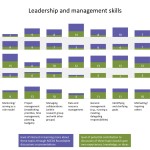
-
Leadership and management skills
-
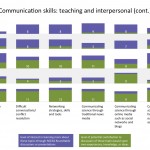
-
Communication skills: teaching and interpersonal 2
-
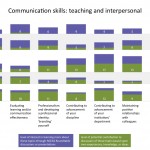
-
Communication skills: teaching and interpersonal 1
-
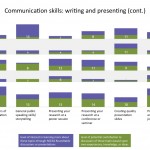
-
Communication skills: writing and presenting 2
-
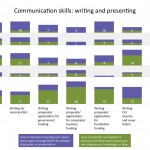
-
Communication skills: writing and presenting 1
-
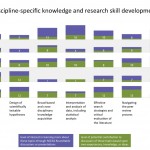
-
Discipline-specific knowledge and research skill development
Several people suggested topics for discussion in addition to the ones included in the survey:
- dealing with sexism and other forms of discrimination in a professional setting
- data visualization
- how to resolve tensions between competition (me first) vs. collaboration/cooperation (us together) modes of advancing science
- enhancing cross-disciplinary communication
- framing research results
Some interesting readings were also mentioned during the discussion:
Please add a comment below if you’d like to suggest additional topics or readings. I hope that these survey results will be helpful for those planning to host the Roundtable in the coming months.
Just for fun, I also mapped out the survey participants based on shared interests and expertise using a self-organizing map (SOM) approach. The two images below show the results of this analysis. Colors represent cluster membership (k-means), and members of the same cluster can be expected to be more similar that members of different clusters.
-
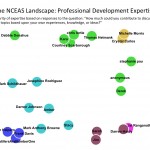
-
The NCEAS Landscape: Professional Development Expertise
-
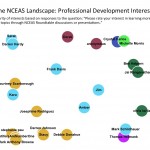
-
The NCEAS Landscape: Professional Development Interests
See you at the next Roundtable!










